Sure, you won’t have the place to yourself, but who cares? These are the sights you have to see during your lifetime. Besides, if you play your cards right—come early or late, don’t show up on a busy weekend, arrive through the sneaky back entrance that few people know about—you can get around some of the crowds. These are our picks for top spots worth visiting, despite the fact that everyone else will be there too.
Grand Canyon National Park, Arizona
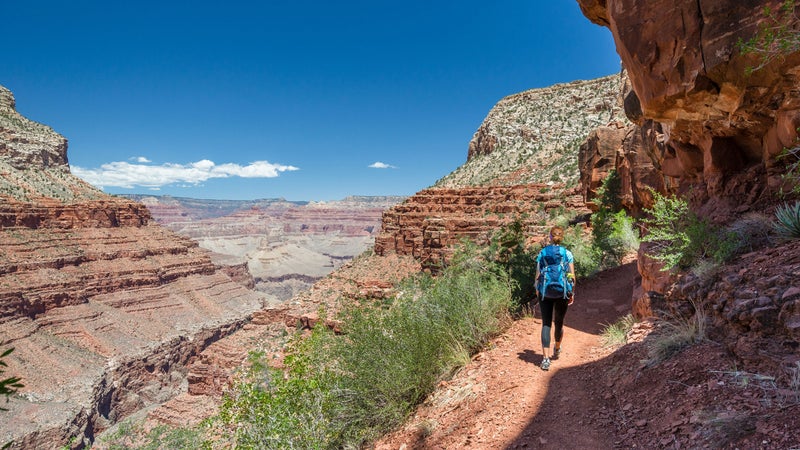
The South Rim of Grand Canyon is notoriously jammed with shuttle busses, RVs, and hikers wearing CamelBaks. And for good reason—the views of the canyon from this side are stunning. If you’re entering the park from here, plan to line up well before 9 a.m. or come at night. (Rangers lead night talks on stars, bats, and geology at the McKee Amphitheater.) Otherwise, skip the bustling Grand Canyon Village and enter the park from Desert View, 25 miles to the east, or via the harder-to-reach North Rim.
While everyone else hikes down the Bright Angel Trail, opt for the more challenging but less traveled Hermit Trail, which you can reach via shuttle from Grand Canyon Village or by car if you have an overnight permit.
Foz do Iguaçu, Brazil
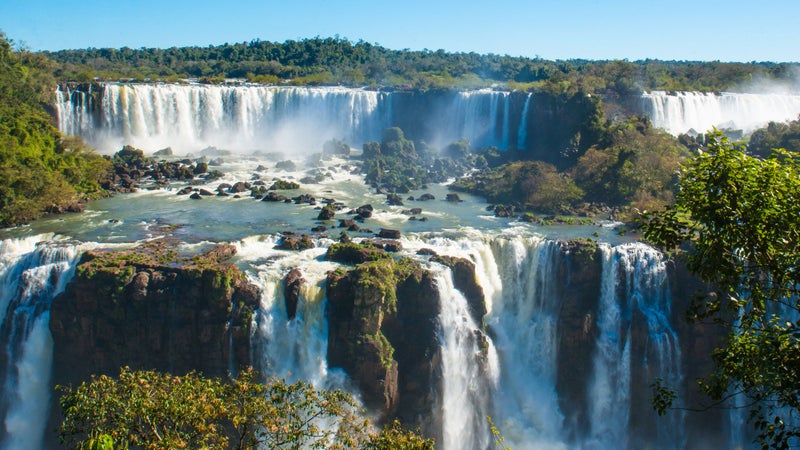
In June, Brazil began allowing visa-free entry into the country for travelers from the United States, Canada, Japan, and Australia. That means it’s even easier to book a trip to visit the famous waterfalls at Foz do Iguaçu, which straddle the border between Brazil and Argentina.
Thousands of people visit the park each day, most of whom come from the Argentinian side, so accessing the falls from the Brazilian side is a good bet. Stay near the falls at the Belmond Hotel das Cataratas (from $441), and you can be on the trail out to the Devil’s Throat viewpoint before everyone else.
Telluride Bluegrass Festival, Colorado
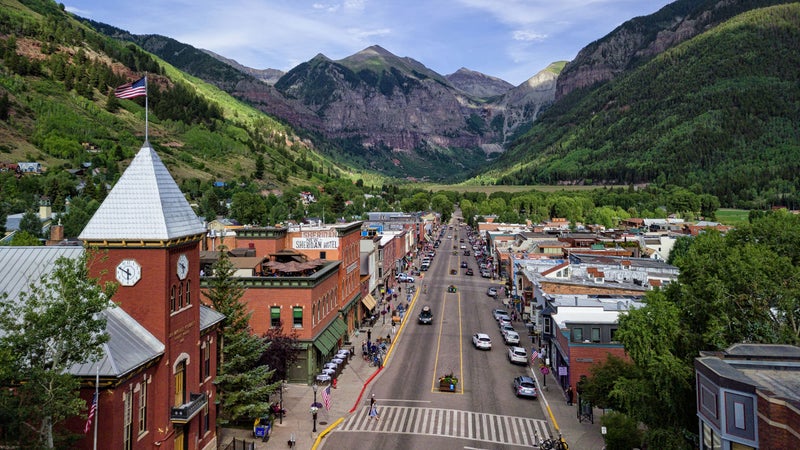
The Telluride Bluegrass Festival, which takes place in late June, brings some 12,000 people to the normally sleepy mountain town. In the 46 years of the festival, the lineup keeps getting more impressive. This year, headliners included Brandi Carlile, the Sam Bush Band, and Railroad Earth. Camping at the festival is a must-do experience, but it’s hardly a solitary one. If you want a little more room, pitch a tent in the forested Mary E. Ilium Campground, seven miles away, and hop the shuttle to the festival.
Don’t forget running shoes and a tarp. To claim a spot near the main stage, you’ll need to line up early for the mad dash that is the daily tarp run.
Tuckerman Ravine, New Hampshire
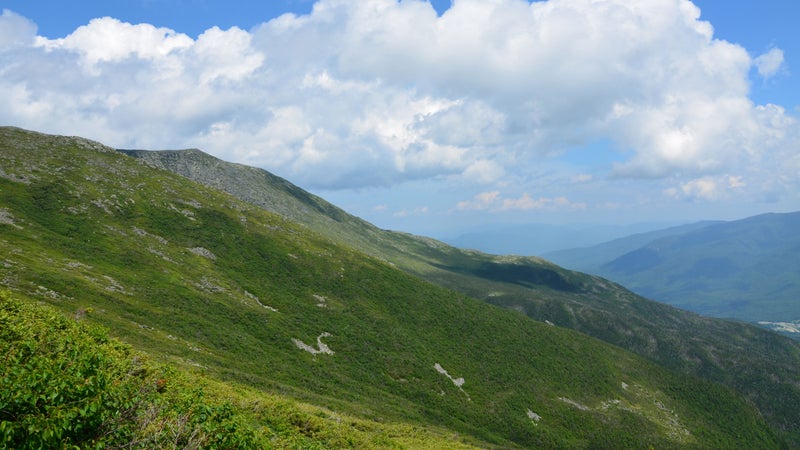
If you’re a budding backcountry skier on the East Coast, Tuckerman Ravine is your pilgrimage. It’s a classic route with some of the finest steep terrain in the country. Each spring, tens of thousands of people hike the 4.2-mile trail to ski the iconic bowl and chutes on the flanks of Mount Washington. To avoid the crowds, don’t show up on a busy weekend in April. Or you could hire a guide from the International Mountain Climbing School to take you to Tuckerman Ravine and some lesser-known zones off Mount Washington with far fewer people.
Aiguille du Midi, Chamonix, France
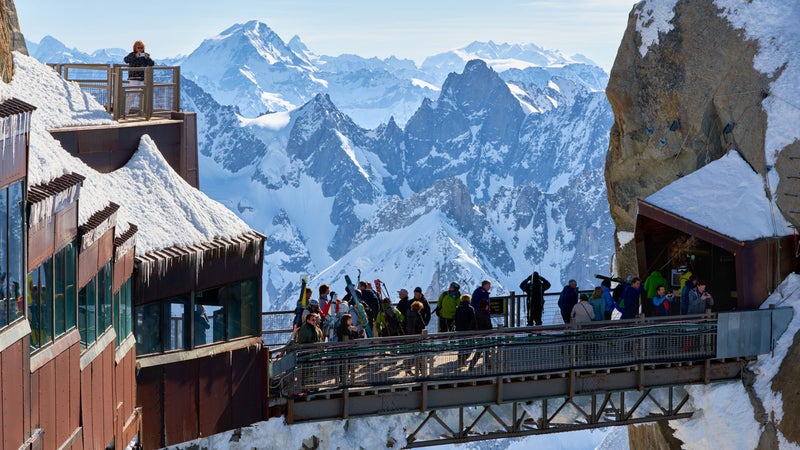
No matter the season, the scenery from the top of the Aiguille du Midi cable car, which rises to 12,391 feet above the Chamonix valley and offers panoramic views of Mont Blanc and the French, Swiss, and Italian Alps, is worth battling the crowds. Nearly half a million people visit this spot every year.
During the summer peak, the lift starts running at 6:30 a.m.—be on the first tram to reduce your exposure to crowds. This is a prime launching point for experienced backcountry skiers and climbers, but consider hiring a guide if you’re going that route.
Franz Josef Glacier, New Zealand
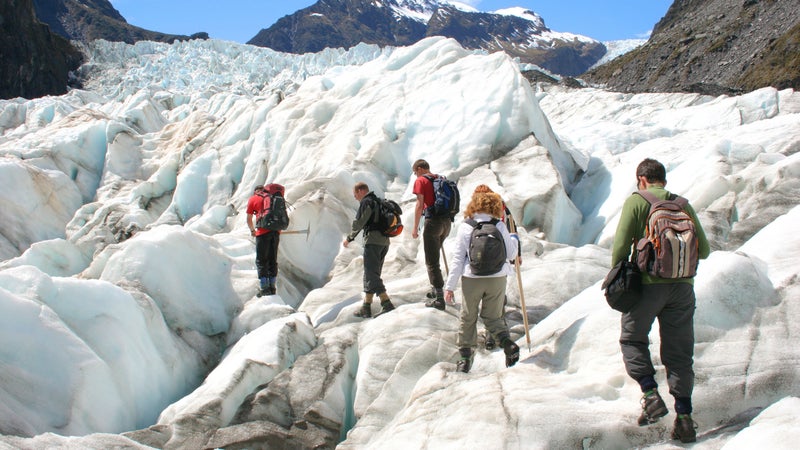
On the west coast of New Zealand’s South Island, the Franz Josef Glacier is a true spectacle: a massive chunk of shifting ice that used to extend from the mountains to the sea.
Join a guided group for a hike in the valley or a helicopter ride to walk on the glacier itself. Peak season is November to March, so come outside that window for less traffic. The nearby Rainforest Retreat has treehouses (from $300), cottages (from $120), and places to park your van (from $31).
Montauk, New York
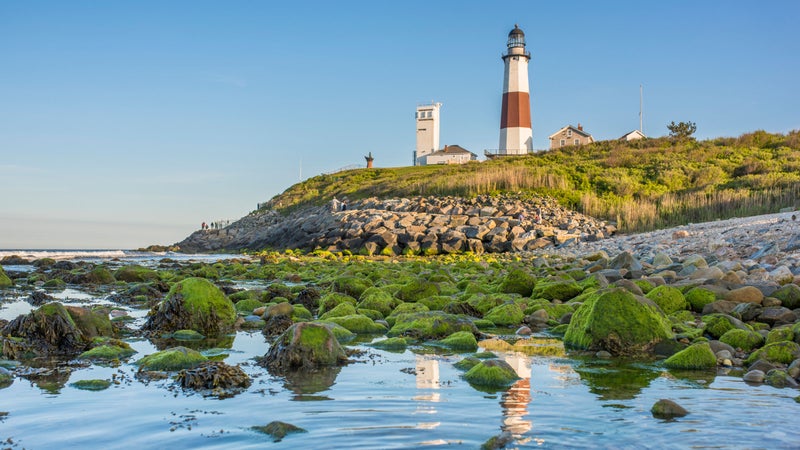
Summer crowds are a real thing in Montauk, where city dwellers escape to the eastern end of Long Island for weekend and summer holidays on the beach. Come in the fall for a quieter experience.
Things to do: Climb to the top of the Montauk Lighthouse, and join the Instagrammers on the patio snapping photos of the sunset from Navy Beach or Montauket, an old-school cliffside bar and restaurant with the best views of Fort Pond Bay. Stay at Solé East Resort (from $229), a few minutes from town but far enough off the main drag to give you a feeling of serenity.
Joshua Tree National Park, California
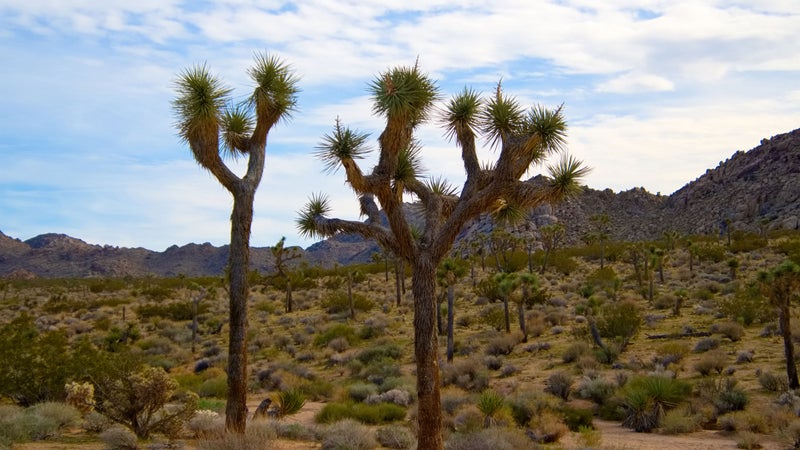
As the closest national park to Los Angeles, Joshua Tree is as accessible as it is beautiful, with thousands of established rock-climbing routes and endless hiking trails. Get this—90 percent of the park’s visitors come through a single entrance, the west gate near the town of Joshua Tree. If you want to avoid that backup, use the north entrance near Twentynine Palms or the southern entrance from Chiriaco Summit. Or show up midwinter, when nobody else is around. Most campers head to Jumbo Rocks; instead, try for a first-come, first-served spot at the smaller Ryan Campground ($15).


